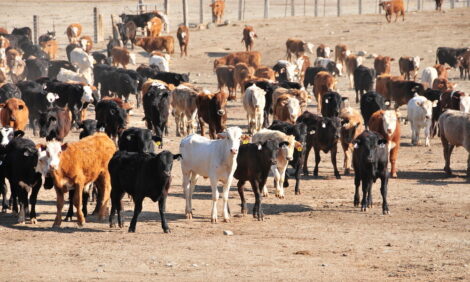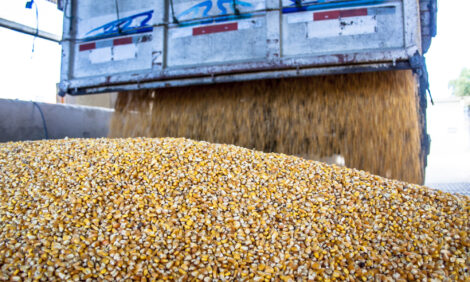



Australia's beef exports to US to remain strong despite tariffs
China's tariffs on US beef are opportunity for AustraliaOn the day Donald Trump announced tariffs on imports from a dizzying number of countries last week, the US president gave a special mention to Australian beef, reported Reuters.
"They won't take any of our beef," he said of Australia, which has restricted entry of US beef due to mad cow disease concerns for over two decades, stopping almost all shipments.
"I don't blame them. But we're doing the same thing right now, starting at midnight tonight."
But Australia's beef industry is feeling relieved, as Trump's 10% tariff on the country's products is not enough to shrink beef exports to the United States running at record levels averaging $275 million a month in the six months to February, industry insiders said.
Meanwhile, tit-for-tat tariffs imposed by China, along with Beijing deciding not to renew the local registration of hundreds of US meat facilities, threaten US beef exports to China worth around $125 million a month, giving Australia and others such as Brazil, Argentina and New Zealand an opportunity to increase their shipments.
"I'm not too stressed by 10%," said Andrew McDonald, whose Bindaree Food Group runs meat processing facilities in Australia and ships beef to the United States.
He said the tariff announcement had revived interest in Australian beef from US buyers who had paused orders for weeks while waiting to see what Trump's tariff action would look like, and that demand for Australian beef into China was rising.
"It's a good outcome for Australia," he said.
Quarter pounder
US beef imports are high after years of dry weather shrank cattle numbers to their lowest since the 1950s, reducing production and raising local prices. Analysts said it will take years for domestic production to grow.
Australia, with a herd swelled by wet weather, is flush with supply and has become the biggest shipper to the US, offering lower prices and lean cuts that the US lacks.
Imported Australian lean trim beef in the US was priced around $3.12 a pound - or almost half a kilogram - before the tariff, said Rabobank analyst Angus Gidley-Baird.
The tariff lifted that to $3.43 a pound, still well below the local product which was priced around $3.80, he said, adding just 2.5 cents to the cost of a quarter-pounder made partly from Australian beef.
While extra costs are likely to be shared through the supply chain, a sharp fall in the Australian dollar versus the US dollar means Australian producers will feel little pain, analysts said. A cheaper currency is an incentive for US buyers to increase purchases and means Australian sellers receive more local currency per US dollar they receive.
The only major beef exporters not subject to US tariffs are Canada and Mexico, but they have limited ability to significantly increase shipments in the short term, said Commonwealth Bank analyst Dennis Voznesenski.
China is the only major buyer of US beef to have retaliated to Trump's tariffs. The country is the third-largest importer of US beef after South Korea and Japan, with the United States accounting for 10% of its beef imports by value.



